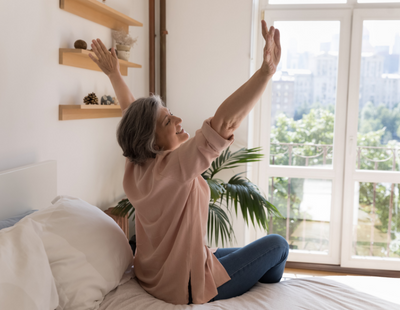The Centre for Ageing Better claims older tenants will benefit most from some of the provisions in the Renters Reform Bill.
As the residents who spend the most time in their properties, and who are most susceptible to poor health from poor housing, older renters could benefit most from the introduction of the Decent Home Standard, the centre says.
The end of Section 21 evictions may also empower older tenants to request repairs and adaptions to their properties which could reduce injuries in the home, it adds.
The centre’s chief executive Dr Carole Easton says: “While the progress in renters’ rights achieved in the long-awaited Renters Reform Bill may be seen as a victory for Generation Rent, the news will also be very welcome to the record number of older renters in England.
“The number of people aged 50 and over now renting has now reached nearly two million and this number is continuing to grow. It is these older renters, who have most to gain from greater protections in the rented sector.
“Applying the Decent Homes Standard to the private rented sector will benefit older renters who tend to spend more time at home. This means that their health is impacted more significantly from cold and damp substandard homes. There are currently almost 50,000 renters aged over 50 living in homes without even central heating.
“The ending of Section 21 ‘no-fault’ evictions is an important rebalancing of the tenant landlord relationship and we hope this change will give renters more confidence to ask for repairs or adaptations when needed. There are almost 600,00 people aged 50 and over with a disability living in the private rented sector and more than half have a disability that significantly limits their daily activities.
“Our demographic is changing and our ageing population is growing. Currently, too many homes in this country are making its occupants ill or posing them a severe risk of harm.
“This government can take further steps in this parliament to change that by pushing through the final stages of legislation to mandate minimum accessibility standards in new homes. And, the government in the next parliament should deliver an ambitious home improvement strategy to fix our poor housing stock to protect both renters and homeowners alike.”





/ParliamentView-400x310.jpg)









%20-%20IMAGE%20Client%20Accounting%20%E2%80%93%20what%20are%20your%20options.jpg)










Join the conversation
Jump to latest comment and add your reply
There is a very real problem looming with the increase of older renters - what happens when your LL retires or worse still, dies? Imagine being a tenant in a property for 20 years , now in your 70s or 80s & the LL dies & the estate wish to sell the house? This is going become a common problem as our aged tenant population grows.
Agreed - and I'll go further.... the problem is greatly exacerbated by the damage that all this legislation is doing (and with more and worse to come) to the PRS.
Ironically, IF the s.21 was never abolished - even though it is relatively rare that it's actually used - THEN it would be a lot easier to sell a property "with the benefit of a tenancy", i.e. without needing to evict the tenant because quite often a property with a good tenant and proper tenancy already set-up was an attractive proposition for an existing landlord looking to expand by buying another property or for someone thinking of becoming a landlord and happy to buy a property already being rented out to a proven good tenant and earning money immediately with no start-up rental void... the abolition of the s.21 destroys both markets...
...few, if any, landlords will want to expand as many/most will already feel stuck and be trying to get out in years to come - exactly as happened following the 1977 Rent Act that turned all tenancies into "protected tenancies" which were similar - though even worse - than our tenancies will be with no s.21
Please login to comment